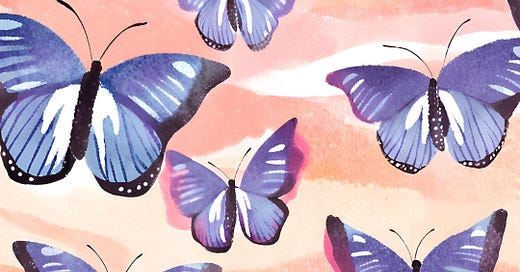The question is as old as love itself, yet it sits on the shelf of modern romance like an untouched book, waiting for someone brave—or foolish—enough to flip through its pages. Is love a gentle editor or an ambitious ghostwriter trying to rewrite the story of who someone is?
It starts innocently enough. You meet someone, and they’re almost perfect. Almost. Maybe he’s the life of the party but texts you back two days later with the enthusiasm of someone responding to a spam email. Or she’s beautiful, successful, and kind—but somehow allergic to the words I’m sorry. You see potential. And isn’t potential just another word for fixable?
In relationships, we often assume the role of architect, imagining we can smooth out the cracks, sand down the rough edges, and paint over the imperfections. We tell ourselves it’s for their good, but let’s face it—half the time, it’s because we think our version of them is better.
But here’s the catch: people aren’t fixer-upper houses. They’re more like old, charming apartments—quirky, lived-in, and prone to the occasional broken radiator. You can move some furniture around, maybe change the curtains, but you can’t gut the place without losing the character that made you fall in love in the first place.
I once dated a guy who, for all intents and purposes, was wonderful. He was kind, intelligent, and funny. But his wardrobe? A disaster. Think graphic T-shirts with sarcastic slogans paired with cargo shorts—and not in a cute, ironic way. I thought, This is harmless. I can help him. So, I bought him new clothes for his birthday. I casually suggested he might look amazing in dark jeans. I even left GQ magazines lying around his apartment like breadcrumbs leading to a better-dressed version of himself.
Did it work? Sort of. He wore the blazer to dinner once, then draped it on the back of his chair like it was suffocating him. He went back to his cargo shorts faster than I could say wardrobe overhaul. And that’s when it hit me: he wasn’t unhappy with his style—I was. My vision for him wasn’t his vision for himself, and who was I to impose it?
This idea of change isn’t exclusive to romance. It happens in friendships, too. You see your best friend dating someone toxic and want to shake her into realizing she deserves better. You watch a coworker self-sabotage and feel the urge to fix them. But change, real change, isn’t something you can gift-wrap and hand to someone—it’s an inside job.
Of course, there are exceptions. People can change—but only if they want to. And wanting to change for someone else isn’t the same as wanting to change for yourself. A man might give up smoking for love, but if he’s still lighting up in secret, that’s not transformation—it’s performance art.
The truth is, we’re all drawn to the idea of being someone’s muse, the person who inspires them to be better, to grow. It’s intoxicating to think you could be the reason someone becomes their best self. But what we often forget is that love isn’t about creating a masterpiece—it’s about appreciating the art as it is, even with its flaws and imperfections.
So, can you change someone? Maybe the better question is, should you? Because when you fall in love with someone’s potential, you’re not really falling in love with them—you’re falling in love with a version of them that exists only in your mind. And let’s face it: that’s a romance doomed from the start.
I’m not saying you shouldn’t hope for growth in a relationship. Growth is essential. But it’s a journey you walk together, not one you drag someone into kicking and screaming. You can inspire, encourage, and support—but you can’t bulldoze, manipulate, or demand.
If we’re honest with ourselves, the urge to change someone often comes from a fear of being alone. It’s easier to try reshaping someone into what we need than to admit they might not be the right fit. But love isn’t about finding someone you can mold into perfection—it’s about finding someone whose imperfections you can live with, laugh at, and maybe even fall for a little harder every day.
In the end, maybe the secret to love isn’t changing someone but learning to love them as they are—and letting them love you back the same way. And if you’re lucky, that kind of acceptance changes you both for the better.
With love,
Victoria (your fake Carrie Bradshaw)
Follow me on Instagram for daily updates on my latest articles! @viccolonne
Five articles I think you might like !
Does Your Bestie’s Approval Define Your Love Life?
Are Second Chances an Endangered Species?
Long-Term Relationships: The Marathon, Not the Sprint
Forgive and Forget? Navigating the Limits of Forgiveness in Relationships






I cant lie, my thought while reading was: why keep choosing someone who isn't perfect for you? I know it's cliche, but there are billions of people, I think at least one must be what are we looking for. At the same time, I'm wondering: even with billions of people, why do we still choose those who "need to be fixed"?is this like a magnet to make us feel useful?